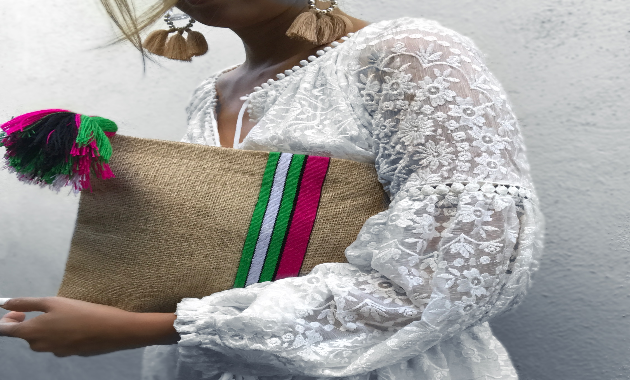Partnerships with retailers are an important way for charities to gain some attention, but this may not always be a good idea. If organisations do not align themselves with the right retailers, they could be in for a bumpy ride.
Third Sector has spoken to charities to gain a deeper insight into what actually goes into a successful retail partnership.
OzHarvest, for example, has solid partnerships with BP and Woolworths which not only help the food-waste charity, but also the retailers.
Announced this year, the five-year partnership with BP aims to address the “devastating cycle of intergenerational poverty, tackle food waste and have a positive impact on the environment”. Already the alliance has helped BP deliver on its promise to do more for retail customers and communities, to reduce food waste at commercial sites and to contribute to improving sustainability.
In return it has most likely helped to widen OzHarvest’s reach, which could be regarded as a win-win situation.
But what is involved in a charity forming a partnership with a retailer, and how can its success be assured?
Alignment important
Foodbank national partnership manager Karen Kennedy says relationships and partnerships work when you are prepared to put in the effort. “Alignment with brand and culture is important; building trust is important. More and more often, it is no longer about a partner writing a check and walking away.
“It is about engaging with charity partners and following up on their impacts. It is important for us to communicate our partners’ impact and connect them to everything we’ve invested in: fundraising, volunteering, the whole spectrum.”
Kennedy says charities with a retailer in mind should look at its previous relationships and see what has worked and what hasn’t.
“Be creative. There are so many ways to partner. You need to be really smart with your pitch. You also need to communicate how the partner can support your organisation.
“It’s about making the right ask at the right time. You need to communicate your needs. You need to be needy.”
Kennedy says organisations also need to be really specific about their request.
Foodbank and Woolworths have been partnering for almost 15 years, with this success lying in aligned values. “We wouldn’t be able to do what we do without our retail partners, which is why they are so important,” says Kennedy.
“It is absolutely essential for what we do. We exist because retailers and manufacturers help by volunteering time, skills or money.”
Need to be strategic
Charities need to be strategic in picking the right partners, advises The Hunger Project CEO Melanie Noden, who says she doesn’t take the task of choosing a partner lightly. The organisation has had a successful partnership with fashion retailer Decjuba for many years, which started when its CEO Tania Austin went on an overseas journey with the charity. From this personal connection the charity and the retailer went on to form a partnership.
Noden says the charity’s reach was not wide in Australia, and the partnership has helped it not only raise funds, but also raise awareness of the its brand.
“Tania rang me when she was in Queensland and said ‘Why don’t we sell a product for you in our stores, like a t-shirt?’,” Noden recalls. The store then started selling t-shirts with the charity’s branding on the front. This helped Decjuba highlight the work it was doing in the charity space and also helped customers become aware of The Hunger Project.
Baptist World Aid Report scored Decjuba as an F this year for ethical fashion. Noden says this did not affect her partnership with the retailer at all, and she knows and is grateful for the “incredible” social impact Decjuba has.
Decjuba’s CEO told sister publication Inside Retail, “The F was for non-participation in the report. But for us, ethical and sustainability practices are at the core of our values. We have strong values that guide the business, and the details of all our practices are on our website.”
Noden says she has always felt great purpose in the relationship with Decjuba, but this might not be the case for all partnerships. “If there is no purpose for the people we are serving, then we don’t do it.”
Due diligence
While partnerships are important, it is vital charities be very considered when forming these relationships.
Stroke Foundation executive director of marketing John De Rango says the charity has an extensive due diligence process when considering a partnership.
“It that begins with understanding our prospective partner’s objectives and expectations.
“We take the time to get to know our prospective partner, its people and its values before developing a partnership. Most importantly, we review the partnership at key milestones with open and honest feedback,” he says.
Rather than a general partnership, the foundation’s alliance with Priceline Pharmacy, formed last year, focuses on a particular campaign – delivering Australia’s Biggest Blood Pressure Check.
“External organisations, such as Priceline Pharmacy, bring with them the expertise and resources we do not have internally. They build our capacity, our experience and enable us to reach more Australians than we would ever be able to on our own,” says De Rango.
“It is a two-way exchange: we provide the expertise, skills and reputation as the leaders in stroke. We’re also a charity with a national footprint and reach.”
He says the best advice he can offer smaller charities wanting to find partners is that “it needs to be a true partnership where both organisations are contributing and being rewarded”.
It is important for charities not to just jump at any opportunity, but first make sure the potential partner is equally invested in the cause. “Research can go a long way, and making valuable relationships takes time and effort.”
This article originally appeared in Third Sector’s Digital mag. Enquire now to subscribe.












